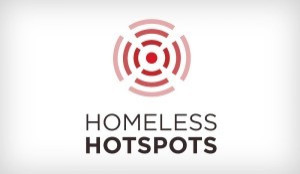‘Poo Wi-FI’ Rewards Dog Owners For Cleaning Up Doggy Doo-Doo

Mexican internet portal Terra is cleaning up the streets of Mexico City one park at a time: The company is piloting a city park program that encourages dog owners to clean up their dogs poop in exchange for free Wi-Fi.
Dog owners have been asked to throw away their bags of canine feces in special boxes distributed around 10 parks in Mexico City. When a person tosses a bag of doggy doo into the special box, it calculates the weight of the waste, and Terra gives free minutes of Wifi in the park for everyone. The more poop that's dropped into the special box, the more free minutes for everyone in the park.
So what's preventing people from throwing trash into the container?
Nothing says Terra, but they're completely okay with that. The company says whether it's trash or dog poop, they're encouraging people to keep the streets and parks of Mexico City clean in exchange for a resources that's in high-demand: Free internet access.
In order to encourage people to throw out exclusively dog droppings in the canister, Terra has hired people to man each of the stations in their pilot program during the day. The person at each of the cannisters will also be passing out bags to collect dog droppings.
Can WiFi Stir Social Change?
This isn't the first time that someone's tried to tie Wi-Fi access to a do-good action for city dwellers. Most recently, at this year's South By Southwest conference in Austin, Texas, New York-based marketing firm BBH Labs created something called Homeless Hotspots that caused a huge stir.
The Homeless Hotspots concept attached a Wi-Fi device to a homeless person and allowing them to service as a mobile hotspot. Through the program, the homeless individuals that participated were able to keep any money they earned by providing free Wifi. BBH Labs defened the program as a way to modernize the Street Newspaper model employed to support homeless populations.
The program was criticized for dehumanizing the homeless individuals that participated. In one video, a participant in the program can be seen wearing a shirt that reads, I'm Clarence, a 4G hotspot. All of the participating homeless individuals were required to wear shirts that said they were4G hotspots, as opposed to providing 4G hotspot access.
It sounds like something out of a darkly satirical science-fiction dystopia, wrote Wired in resonse to the program. But it's absolutely real -- and a completely problematic treatment of a problem that otherwise probably wouldn't be mentioned in any of the panels at South by Southwest Interactive.
ReadWriteWeb was similarly taken back by the program. It wrote, The digital divide has never hit us over the head with a more blunt display of unselfconscious gall.
Still many of the participating individuals were fans of the program. One of the homeless men participating in the program told RWW that the program was awesome and that it helped kill the stereotype that homeless people don't want to work. While those that were connecting to the mobile hotspots -- mostly members of the media -- felt uncomfortable about the program, the homeless individuals that participated were mostly okay with the idea behind the program.
Can 'Poo Wi-Fi' Be More Successful?
Terra's efforts to create social change using access to Wi-Fi as bait will likely receive a much better response than BBH Lab's effort to do the same. Terra's Poo Wi-Fi program doesn't dehumanize anyone or put anyone in any individuals in a compromising position. In fact, there are very few barriers between the public and the Wi-Fi access -- just as long as everyone chips in and keeps cleaning up the parks.
© Copyright IBTimes 2025. All rights reserved.





















